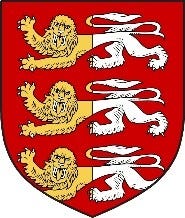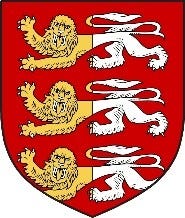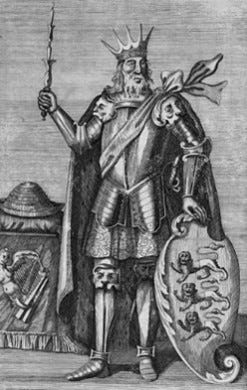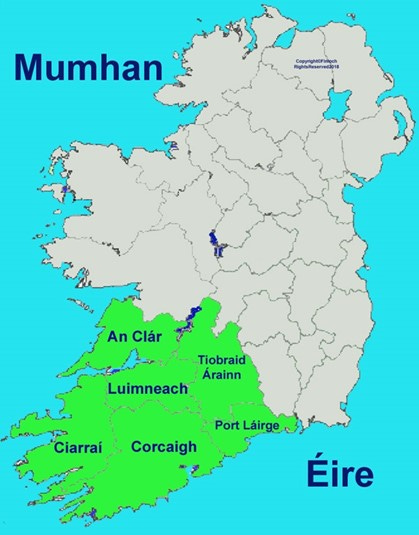O'Brien Dynasty: The O'Briens, also known as the Uí Briain Dynasty, was one of the most prominent and influential clans in Irish history. They held power in the southern region of Munster, producing several kings of Thomond (North Munster) and played key roles in Irish politics and warfare.
Origins and Lineage: The O'Brien Dynasty traces its ancestry to Brian Boru (Brian Bóruma), one of the most celebrated figures in Irish history. Brian Boru reigned as High King of Ireland from 1002 to 1014 and is renowned for his military prowess and leadership. He hailed from the Dál gCais tribe in Munster and established the O'Brien Dynasty's dominance in the region.
Territorial Control: The O'Briens held extensive territories in Munster, with their power centered in the kingdom of Thomond. Their territory included parts of modern-day County Clare, County Limerick, and County Tipperary. They also had power over neighboring regions and frequently clashed with rival clans for control of territory and resources.
Political Influence: Throughout the Medieval Period, the O'Brien Dynasty produced numerous kings and chieftains who held significant political authority in Munster and beyond. They played key roles in Irish politics, often aligning themselves with other Gaelic clans against external threats, including Viking incursions and English expansion.
Brian Boru's Reign: Brian Boru's reign as High King of Ireland marked a period of relative stability and unity. He achieved notable military victories, including the Battle of Clontarf in 1014, where he defeated a Viking coalition. Although he was killed in the battle, his legacy endured and he is remembered as a national hero in Ireland.
Legacy and Cultural Impact: The O'Brien Dynasty left a lasting imprint on Irish culture, literature, and folklore. Brian Boru's legacy is celebrated in numerous Irish ballads, poems, and historical accounts. His descendants, the O'Briens, continued to play important roles in Irish society, with many serving as regional kings, lords, and patrons of the arts.
Decline and English Conquest: Like other Gaelic clans, the O'Brien Dynasty faced challenges from English incursions into Ireland. The Norman invasion of Ireland in the 12th century brought further upheaval, leading to the gradual erosion of Gaelic power and the establishment of English authority. Despite their resistance many Gaelic lords, including some O'Brien chieftains, eventually submitted to English rule.
Modern Descendants: Today, descendants of the O'Brien Dynasty are found throughout Ireland and the Irish diaspora. The surname O'Brien remains one of the most common in Ireland, and many individuals proudly trace their ancestry to Brian Boru and the illustrious lineage of the O'Brien kings of Munster. Overall, the O'Briens’ history reflects the interplay of politics, warfare, and culture in Medieval Ireland.4
Excerpted from: A Gathering of the Clans: A History of Ireland's Most Prominent Families, With a Comparison to Scottish Clans, pp. 22-23, Michael Thomas, Points East Communications, Aurora, Colorado, 2024






